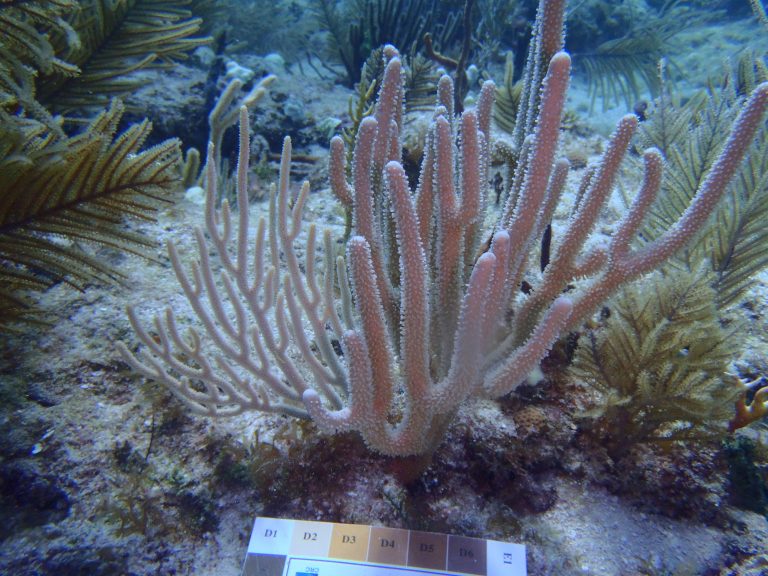CSUN Professor of Biology Robert Carpenter has received funding from the National Science Foundation to track the ecological function of a coral reef shortly after a major bleaching event.
Bleaching, a response to heat or other stress in which coral polyps expel the symbiotic algae that provide them with a major part of their nutrient needs, has become more severe and widespread in warmer climates created by burning fossil fuels. Marine biologists have studied how the species forming reef communities are changed by bleaching, but the overall ecological outcomes — changes in photosynthetic activity, respiration, and accumulation of calcium to build the reef — are less well studied. The new project will track these factors at sites around a reef in Mo’orea, French Polynesia, that experienced "moderately severe" bleaching this past spring.
Image: Bleached coral, which has lost its algal symbionts. (Coffroth Lab)

